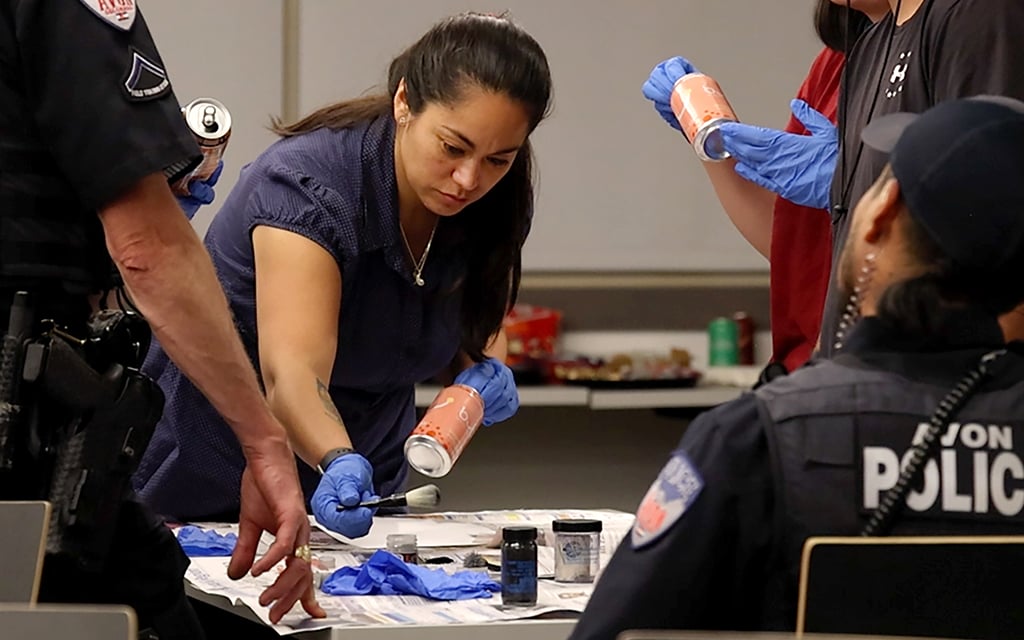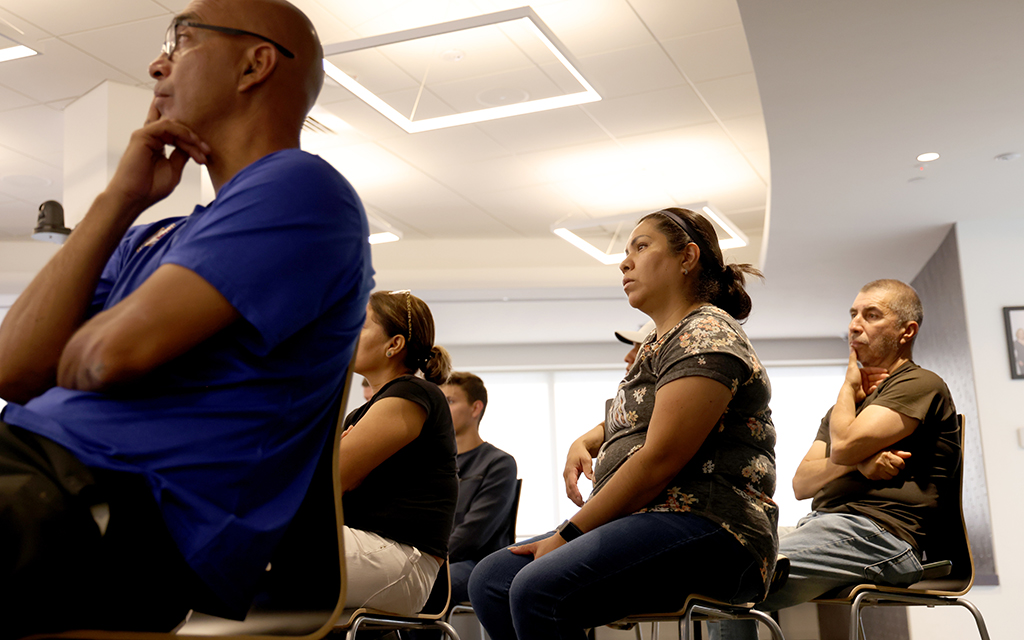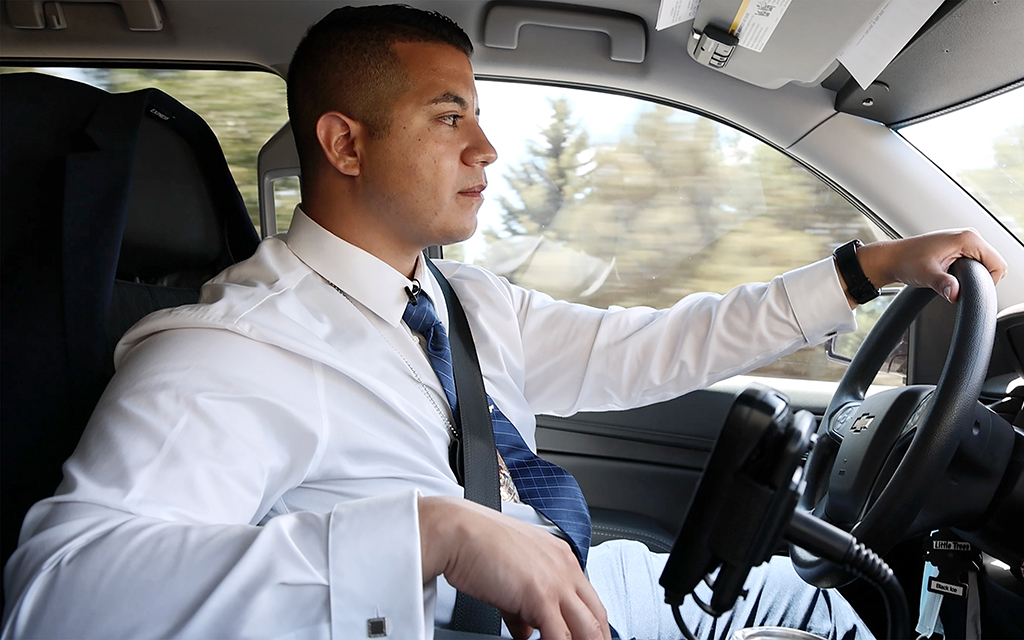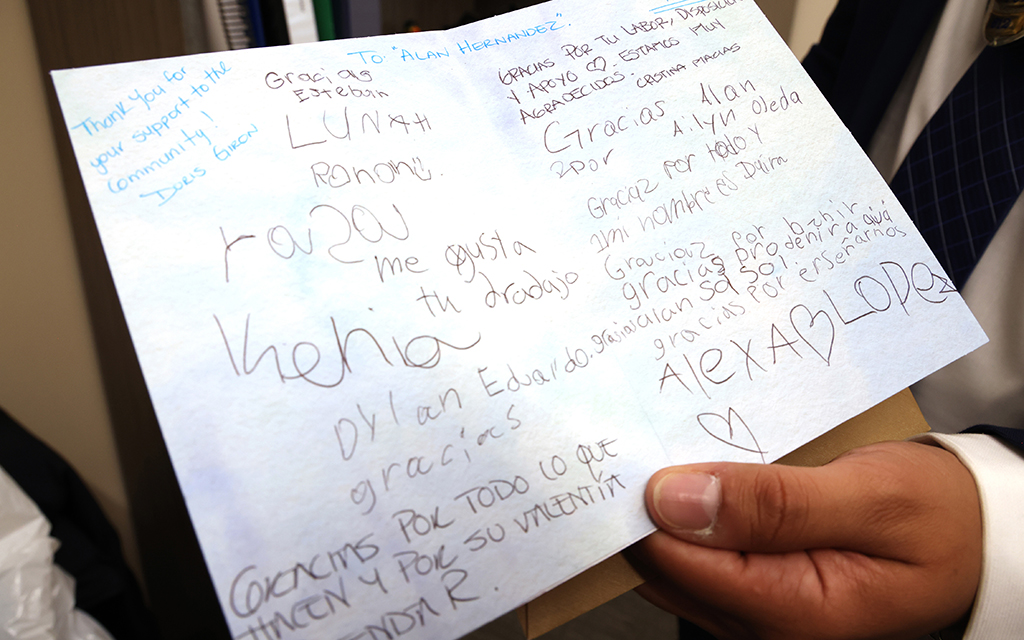Law enforcement agencies nationwide have launched efforts to engage with immigrant communities through language and cultural programs in hopes of building trust. Some practices highlighted in a Police Executive Research Forum report include training officers on cultural competency, developing a unit to coordinate interpreters and encouraging officers to speak on Spanish-language radio.
In Avon, the department has hosted a Latino Police Academy – or Academia de Policía Para Latinos – for about a decade. Seven of the department’s 21 officers speak Spanish. And officers have posted fun TikToks in Spanish as a way to connect with immigrants.
Hernandez participates in all of it, including the TikToks. He wants to dispel the myth that if you don’t have legal residency, you can’t trust police.
“A lot of people think it’s a service that is only for residents or citizens,” he said. “But no, the police are here for everyone.”
Chief Greg Daly said his department’s No. 1 priority when responding to calls is addressing the issue at hand, not a person’s immigration status.
Some residents won’t report crime, he said, because of their “concern that there would be immigration ramifications from that report.”
(Audio by Natalie Skowlund/News21)
“It is absolutely irrelevant to us as to what their immigration status is when we arrive,” he said.
For people like Laura Segura, an organizer with the Colorado Immigrant Rights Coalition who works closely with Latino communities in Colorado’s mountain towns, that’s not always clear.
Segura’s eyes welled up while recounting the times her son worried she would get pulled over while driving. Without the proper papers, she couldn’t get a valid driver’s license.
And her fears run deeper than getting a citation during a traffic stop.
Segura, who was born and raised in Mexico City, said most officers in Mexico’s capital city were corrupt – a corruption she contends exists in this country as well.
She said migrants coming from other countries often expect to feel safe here, but sometimes don’t.
“Our public safety departments are not providing safety,” she said in Spanish. “That worries me.”
She agreed, however, that engaging with the immigrant community could improve the relationship with police.



